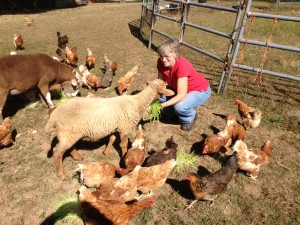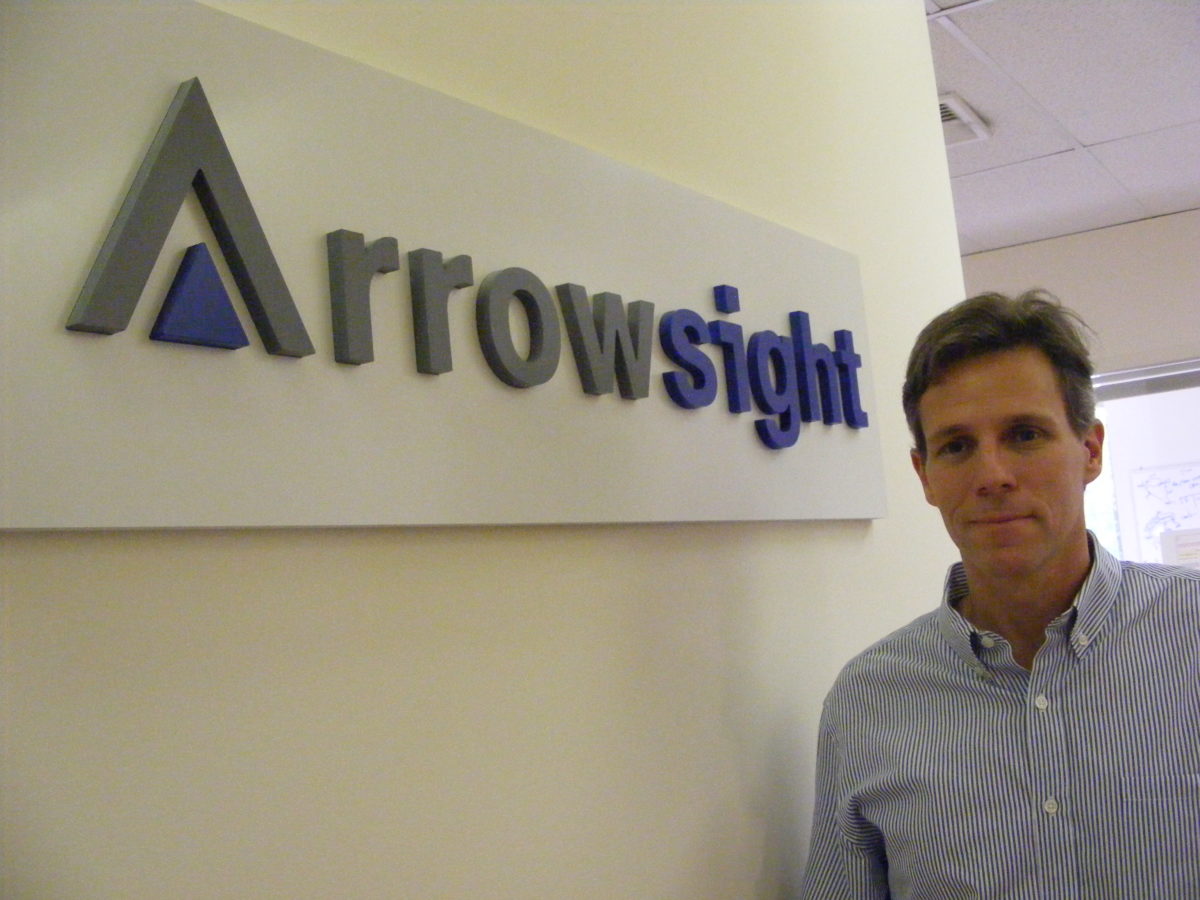Born second oldest in a farm family of seven children in Larned, Kansas, Mary Ellen Finger pursued a hectic career as a veterinarian in a crime-ridden section of New York City before choosing to return to her farm roots in 1985 by purchase of property in Cold Spring”™s Hudson Highlands.
A bout with cancer motivated the former farm girl to unstress her life. Today she presides over 20 acres, producing lambs, mutton, turkeys and eggs for market. Her eggs in white, brown and blue-green hues are popular at the local Foodtown.
“We have chosen a life of radical simplicity,” she says of herself and her husband, David Vickery, whom she met after moving to Cold Spring. Her daughter, Johanna Altmann, is moving back to the farm after completing accounting studies.

Farming is a third career endeavor for Finger, who resisted her mother”™s efforts to shepherd her into nursing. “I worked at a local mental hospital,” she grimaces, adding that she wanted to become a veterinarian at a time when women could not get into veterinary colleges. She became one of 10 female students out of a class of 100 at Kansas State University”™s Department of Veterinary Medicine. Emerging with a Doctor of Veterinary Medicine, she was drawn to New York City by the Animal Medical Center, a teaching hospital.
Her practice was in Manhattan”™s then crime-ridden East Village. A staunch proponent of alternative medicine, she had journeyed to the Bahamas and Germany for cancer treatment unavailable in this country. Her combined veterinarian training and dedication to alternative medicine has served her in the farm”™s operation. Defying a commonly held belief that “a sick sheep is a dead sheep,” she has treated sick sheep with a portable red laser machine, avoiding need for surgery. “I have brought them back in a half to one hour,” she says, “although it sometimes takes a day for them to fully recover.”
Her flock of hens is protected by one or two roosters. Her eggs are known for a deep yellow hue that she attributes to sunlight and freedom to forage for bugs. The bluish-green eggs are products of an Araucana hen, “a jungle bird that is a great forager and hides eggs in the green lush jungle,” she says. Her heritage hens with brown ears produce brown eggs. The leghorns, with white ears, are a high-production bird producing the white eggs.
Predators are a problem. “Skunks eat the heads off chickens,” Finger laments. She also faces a problem with possums. “They eat the livers out of baby lambs.” Eight sheep recently took a hit from coyotes.
The lambs are taken to slaughterhouses. “Some Muslims and Hispanics prefer to do their own slaughtering,” she says. Finger maintains that farm people know the purpose of livestock is for meat production. “It is buried in our genes. City folks tend to be sentimental toward livestock and give them names.”
Finger buys turkeys as hatchlings to raise for her table and limited marketing. She maintains a cow and pig to provide her family”™s own needs.
The animals are raised without hormones or other intrusions. “We grow all our barley grass for extra super nutrition during the winter months,” she explains.
Only one member of the household does not work: Tex, the family Devon Rex cat. Guardians include Floyd, a Sardinian donkey; Tag, a quarter horse, and Ethel, the goose.
Challenging Careers focuses on the exciting and unusual business lives of Hudson Valley residents. Comments or suggestions may be emailed to Catherine Portman-Laux at cplaux@optonline.net.





















